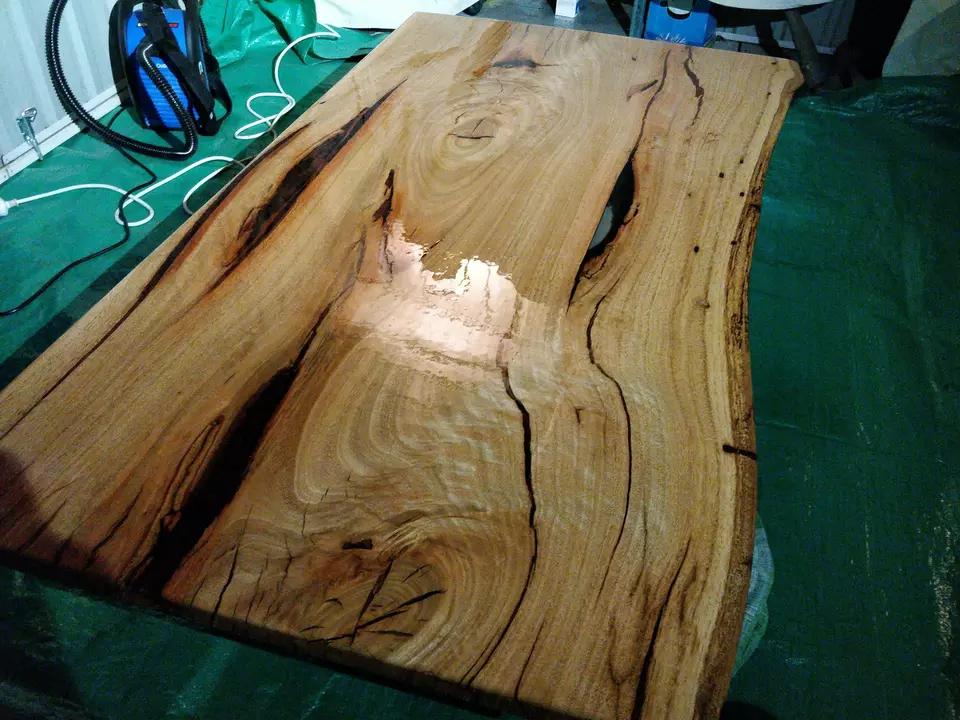The fact that you want the desk to be resistant to a glass (and I suppose therefore some liquid from spills or condensation) makes me think that any kind of oil isn't the best option in terms of durability. Oils don't fully seal the surface of the wood, and therefore there is some chance that water will leave a mark.
Also, since this is a complex piece with multiple surfaces, I'd suggest that spraying the finish might be the easiest way. You'd have to get a spray gun and find a safe way of using it (probably outside), but it makes it extremely easy to get an even covering even where the furniture has a complex shape. YouPotentially can apply the finish to the piece in its assembled form (or at least partially assembled), while easily reaching any corners or crevices. If you shop around there are some cheap spray guns which work decently, and there is also the option of hiring/borrowing one.
You can check out my reflections (as a relative novice) on applying a sprayed lacquer finish to a desk I made recently. I had similar requirements to what you have:
- good durability, and water resistance on the desk portion
- preservation of the natural wood colour
- speed of application
I went with acid catalysed lacquer (AKA conversion varnish). The product I used preserved the natural wood colour very well, seals the wood completely, is very durable, and dries to the touch in only about 15 minutes (although longer is required between coats and before use).
A potentially easier option is the older nitrocellulose lacquer, often used to finish electric guitars. Disadvantages are that it's less durable (although still waterproof), and results in a significant yellowing of the natural wood color (which increases over time). However it's cheaper, and is available in aerosol cans which means you can spray it without a spray gun. Sanding is also not required between coats.
